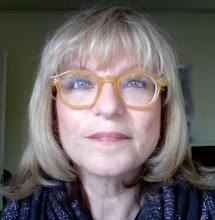 The night we arrived in Saigon Shelli had started to cough. By the next morning it was clear she was getting sick and if we wanted to do some sightseeing we had to get a move on. Our guide picked us up and offered the usual stops: the War Remnants Museum, a temple in Cholon, the local Chinatown, or anything else we wanted to see. Well, we said, we’d like to go to the Art Museum and the street of antique shops that our Hoi An guide, a Saigon native, had suggested. This triggered a flurry of discussion between the guide and the driver, who agreed that the museum would be closed that day (Sunday) and had never heard of the antiques street. Gene wanted to see the War Remnants Museum, Shelli didn’t much want to, but what the hey, that’s where we went.
The night we arrived in Saigon Shelli had started to cough. By the next morning it was clear she was getting sick and if we wanted to do some sightseeing we had to get a move on. Our guide picked us up and offered the usual stops: the War Remnants Museum, a temple in Cholon, the local Chinatown, or anything else we wanted to see. Well, we said, we’d like to go to the Art Museum and the street of antique shops that our Hoi An guide, a Saigon native, had suggested. This triggered a flurry of discussion between the guide and the driver, who agreed that the museum would be closed that day (Sunday) and had never heard of the antiques street. Gene wanted to see the War Remnants Museum, Shelli didn’t much want to, but what the hey, that’s where we went.It’s hard to accept seeing yourself as the bad guy. Granted, the museum is a propaganda windfall for the winning Vietnamese government, but much of it is true, even allowing for the spin. There are pictures we saw in the ‘60s, there are samples of bombs and mines, there are photos of people after encountering those bombs and mines, there are photos of our side, their side, whatever, people dying in a tragic war. We moved through relatively quickly, but were conscious of other visitors, Vietnamese, German, Japanese spending a lot of time viewing the exhibits. It made us feel defensive, but we couldn’t defend ourselves. It happened.
The first part of the museum was dedicated to a show of photographs by and of the war photographers who died or disappeared in Indochina from just after WWII up to the fall of Saigon. Stunning to see that so many died, some of them the creators of the most iconic images we’ve ever seen, among them the famous Robert Capa. In our hotel in Siem Reap we had seen an exhibit of photographs by a young Japanese photographer who had disappeared in Khmer Rouge territory on his way to Angkor in 1973. He was also represented here.
 During our drive to the temple in Cholon our guide Diep, a young woman who had made quite a point of telling us how wonderful Ho Chi Minh was: “We lo-oove Ho Chi Minh. He is our father. He had no wife, no children, so he dedicated himself to my country,” was quite open about the shortcomings of that country. “My father was a Communist and was very happy to win the war, and he told me that now he wishes that the Americans win, because he has no good life now.”
During our drive to the temple in Cholon our guide Diep, a young woman who had made quite a point of telling us how wonderful Ho Chi Minh was: “We lo-oove Ho Chi Minh. He is our father. He had no wife, no children, so he dedicated himself to my country,” was quite open about the shortcomings of that country. “My father was a Communist and was very happy to win the war, and he told me that now he wishes that the Americans win, because he has no good life now.”She went on to tell us how difficult living in Vietnam is, how expensive it is, how she had to pay a bribe to the doctor delivering her baby to be sure she would get the best treatment. She called it “tipping”, and says it’s ubiquitous and that it makes sense because people make such low salaries and have to pay for everything themselves, no medical coverage, no unemployment, no pensions. When Shelli mentioned that this might not be the society Ho Chi Minh had envisioned, she agreed. According to Diep, much of the money that fuels the consumer buying in Vietnam comes from overseas Vietnamese who send money home to their families. But, she says, it will change.

Gene went off the next day and found the Art Museum, an unairconditioned building with some interesting exhibits, and also found a couple of galleries, coming back with several charming small paintings on paper. He says that during his stroll he was offered everything from a motorcycle ride to a “pretty woman with big breasts”. He also says that if the two had been combined he might have considered it…let’s see, a motorcycle with big breasts? No, that’s probably not it.
New Year’s Eve was spent in the hotel, coughing and sneezing, and 2007 came in without us awake to greet it.



No comments:
Post a Comment